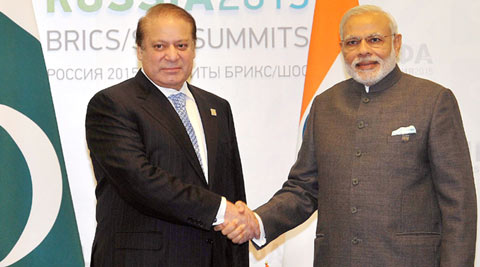
Prime Minister Narendra Modi’s decision to re-engage Islamabad is a welcome course correction to his government’s Pakistan policy that has seen a few twists over the last year. Modi’s surprising outreach to Pakistan Prime Minister Nawaz Sharif immediately after the May 2014 general elections was followed by an abrupt cancellation of the talks with Islamabad in August. Flip-flops on Pakistan are not unusual for New Delhi, where governments over the last three decades have found it difficult to normalise relations with Islamabad. But none of them could avoid engagement with Pakistan for too long, despite strong concerns on cross-border terrorism. The logic of geography and Delhi’s own self-interest in preventing the Pakistan factor from undermining its national and international agenda has meant India has always returned to the table after walking away from it in a huff — after a decent interval.
After months of maintaining a tough posture towards Pakistan, Modi recognised that the political returns on a muscular approach were diminishing. The joint statement issued after his talks with Sharif on the margins of the multilateral gathering in Russia on Friday was typical in trying to construct a three-legged peace process. One leg of the tripod is Pakistan’s commitment to confronting the sources of anti-Indian terrorism on its soil; the second is the Indian willingness to discuss the question of Jammu and Kashmir; and the third is about promoting common development. To demonstrate their seriousness, the two sides agreed that their national security advisors — Ajit Doval and Sartaj Aziz — would meet soon in Delhi to take the dialogue forward. They will focus on expediting the trial in Pakistan of those who plotted the 26/11 attacks on Mumbai. They will also get their security agencies to reduce military tensions on the border. Modi and Sharif also announced two important measures that should generate popular support for the peace process — releasing all fishermen and their boats in each other’s custody and facilitating religious tourism across the border.